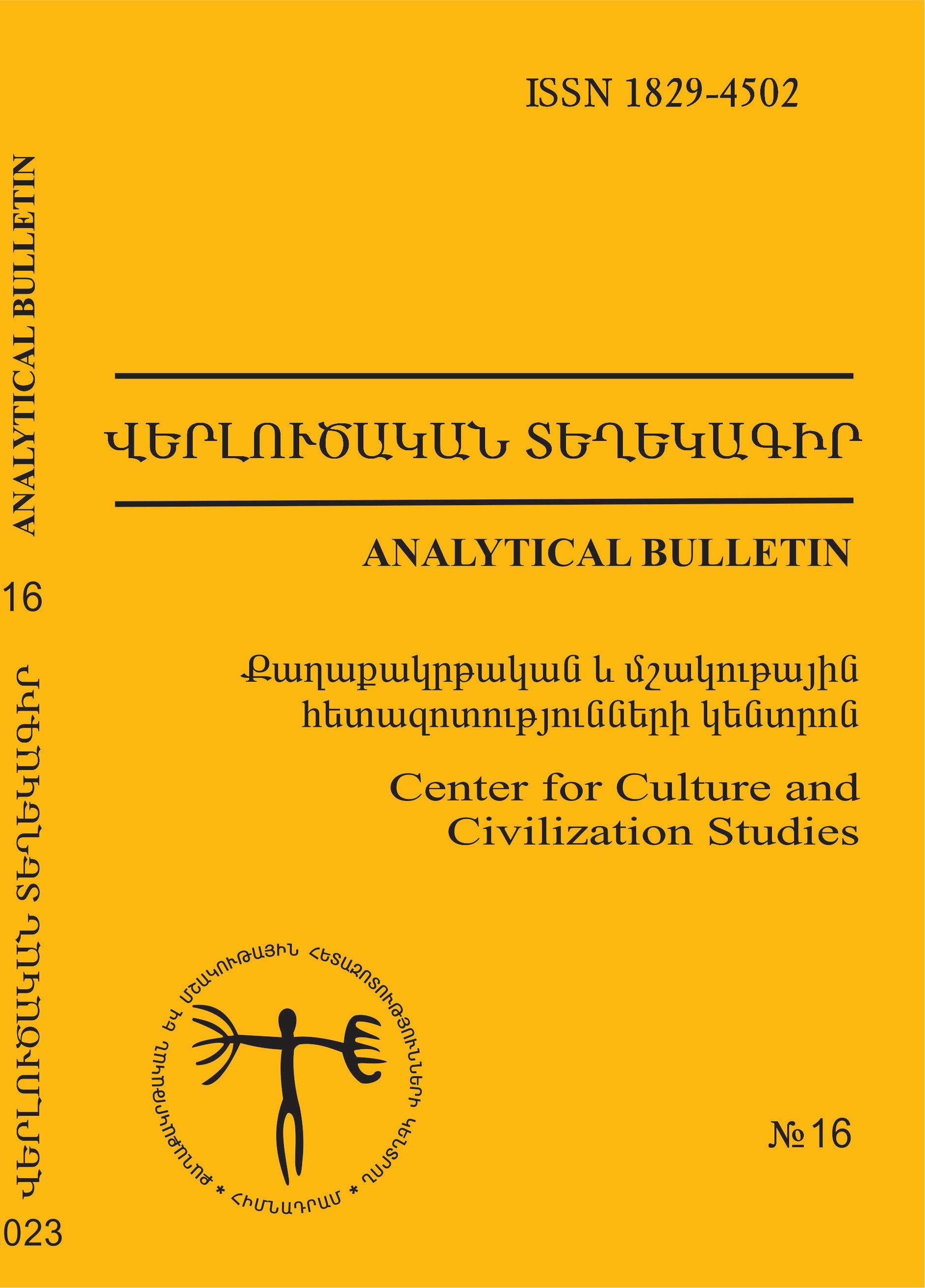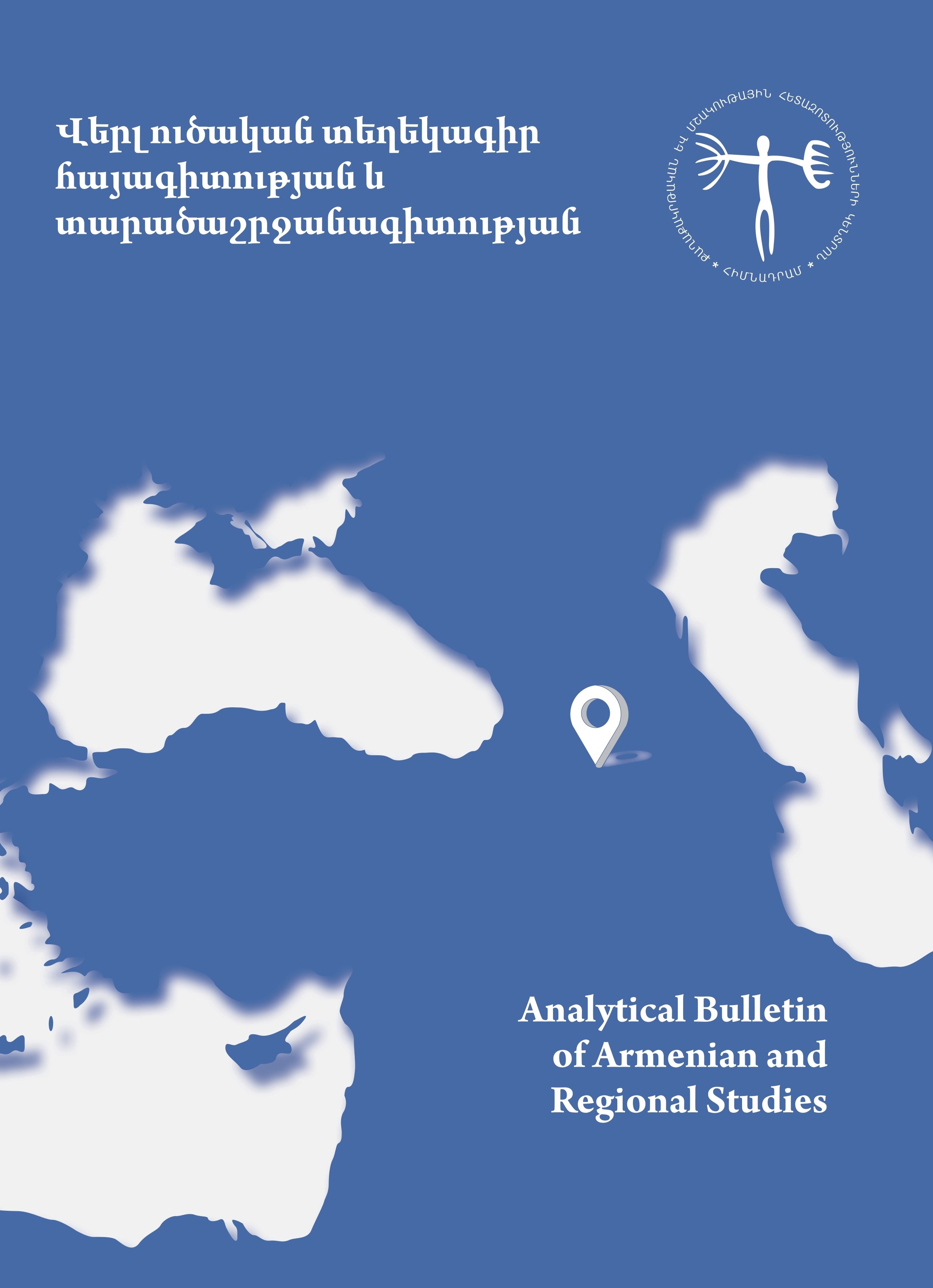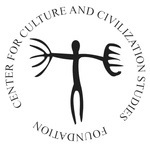The Role of Islam in the Emergence of Kurdish Nationalism
DOI:
https://doi.org/10.56673/18294502-23.16-33Keywords:
nationalism, religion, Sufism, medrese, Ottoman Empire, Republic of TurkeyAbstract
This article delves into the intricate relationship between Kurdish nationalism and Islam during its formative years and subsequent development. The historical backdrop reveals a profound interconnection, with profound implications for the shaping of Kurdish national identity. Kurdish nationalism's emergence and evolution were deeply enmeshed with Islamic influences. This connection found its expression through the pivotal roles played by Sufi brotherhoods and Islamic educational institutions known as madrasas.
Sufi brotherhoods occupied a central position in the lives of Kurds, and it is notable that a significant majority of prominent Kurdish nationalist figures were devout followers of Sufism, nurtured within the nurturing embrace of these brotherhoods. In their turn, medreses, functioning as indispensable Islamic educational establishments, exerted a substantial influence on the rise of Kurdish national sentiments and the eventual crystallization of Kurdish nationalism. Notably, the inclusion of Kurdish language instruction within the curriculum of medreses played a pivotal role in fostering a distinct national identity, thereby providing a sturdy foundation for the emergence of Kurdish nationalism.
This article sheds light on the intertwined narratives of religion and nationalism in the Kurdish context, offering valuable insights into the complex historical forces that have contributed to the shaping of Kurdish identity and the enduring relationship between Kurdish nationalism and Islam.
References
Ալ-ասիր, Իբն: Օտար աղբյուրները Հայաստանի և հայերի մասին, արաբական աղբյուրներ Բ, թարգմ․, առաջաբանը և ծանոթագրությունները՝ Արամ Տեր-Ղևոնդյան. Երևան։ ԳԱԱ, 1981:
Սահակյան, Նաիրա: «Խալիֆայության սուննիական տեսության պատմական զարգացումը»: ՔՄՀԿ Վերլուծական տեղեկագիր no. 7 (2015), 30-71, ԵՊՀ:
Поладян, Аршак. Курды в VII-X веках по арабским источникам. Ереван: НАН, 1987.
Akturk, Ahmed Serdar. “The Development of the Kurdish National Movement in Turkey from Mahmud II to Mustafa Kemal Ataturk.” In Routledge Handbook on the Kurds, edited by Michael M. Gunter, 63. NY: Routledge, 2019․
Anderson, Benedict R. Imagined Communities: Reflections on the Origin and Spread of Nationalism. 2nd ed. London: Verso, 1991.
Brubaker, Rogers․ “Religion and Nationalism: Four Approaches.” Nations and Nationalism, no. 18, (2012): 2.
Bruinessen, Martin van․ Agha, Shaikh and State, The Social and Political Structures of Kurdistan․ London: Zed Books, 1992.
Correspondence Respecting the Kurdish invasion of Persia, Sheikh Obeidallah to Dr Cochran, 5 October 1880, Inclosure in Abbott to Thomson, Urumiya, 7 October 1880, Parliamentary Papers, Turkey No. 5 (1881).
Durkheim, Emile․ The Elementary Forms of Religious Life․ New York: Free Press, 1995.
Friedland, Roger․ “Money, Sex, and God: The Erotic Logic of Religious Nationalism.” Sociological Theory, no. 20(3), (2002): 381-425.
Hassanpour, Amir. “The making of Kurdish identity: Pre- 20th century historical and literary discourses.” In Essays on the origins of Kurdish Nationalism, edited by Abbas Vali, 126-127. Costa Mesa: Mazda Publishers, 2003.
Hassanpour, Amir. Nationalism and Լanguage in Kurdistan. San Francisco: Mellon Press, 1992.
Hutchison William R., and Hartmut Lehmann, eds. Many Are Chosen: Divine Election and Western Nationalisms․ Minneapolis: Fortress Press, 1994.
Jwaideh, Wadie․ The Kurdish National Movement, its Origin and Development․ New York, Syracuse: Syracuse University Press, 2006․
Lings, Martin. What is Sufism? Berkly and Los Angeles, University of California Press, 1975.
McDowall, David. A Modern History of The Kurds, 4th edition. London, I. B. Tauris, 2021․
Olson, Robert․ The Emergence of Kurdish Nationalism and the Sheikh Said Rebellion, 1880-1925․ Cansas: University of Texas Press, 1989.
Rudaw. "Hopes for Zoroastrianism revival in Kurdistan as first temple opens its doors”, վերջին մուտք՝ 05․06․2023 թ․: https://www.rudaw.net/english/kurdistan/210920163.
Sarigil, Zeki and Fazlioglu, Omer. "Exploring the roots and dynamics of Kurdish ethno-nationalism in Turkey." Nations and Nationalism 20, no. 3, (2014): 447, Bilkent University.
Smith, Anthony D. Chosen Peoples․ Oxford: Oxford University Press, 2003.
Taylor, John G. “Travels in Kurdistan, with Noticed of the Sources of the Eastern and Western Tigris and Ancient Ruins in the Neighborhood”, Journal of the Royal Geographical Society no. 35, (1865).
Thomson to Granville, Tehran, 31 October 1880, Parliamentary Papers, Turkey No. 5 (1881): Տես նաև՝ Abbott to Thomson, Urumiya, 7 October 1880, Inclosure 1 in No. 61, Parliamentary Papers, Turkey No. 5 (1881).
Zinar, Zeynalabdîn․ Xwendina Medresê, Kurdî/kurmancî, Şîrovekirin․ Stockholm: Pencînar Weşanxaneya Çanda Kurdî, 1993․
Zurcher,Erik J. Turkey: A Modern History․ London, New York: I. B. Tauris, 2017.
Downloads
Published
How to Cite
Issue
Section
License
Copyright (c) 2023 Tigran Chandoyan

This work is licensed under a Creative Commons Attribution-NonCommercial 4.0 International License.









